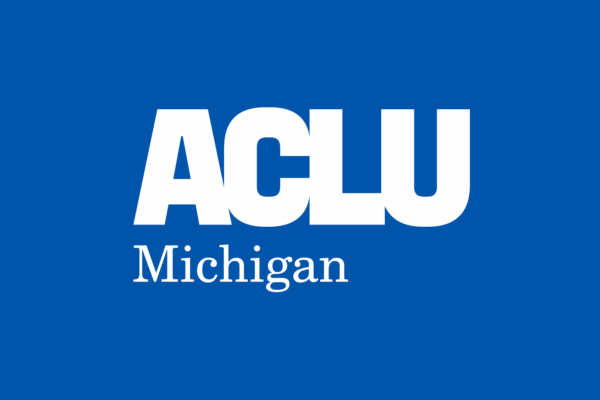What the woman we’ll call Maria most wants people to know is how very thankful she is, first to God, and then to all the people who worked to get her out of the Calhoun County Jail. Once that gratitude is expressed, though, the message she wants to send is one of alarm over the threat asylum seekers like her endure in county jails during a deadly pandemic.
We’re not using Maria’s real name because she fears harsh reprisal from the Cuban government if her bid for asylum fails and she is forced to return to the country she fled last year. Her hope was to be reunited with her husband, who left Cuba in 2017 after government agents beat him and threatened to jail his entire family. Illness prevented Maria from leaving with him.
Although health problems still plagued her, she finally summoned the strength to make the journey last year, traveling through Nicaragua, Honduras, Guatemala and then Mexico, where she crossed the border into Texas, where she hoped to be reunited with her husband.
Once in the U.S., in accordance with the law, she told immigration officials that she was seeking asylum because of the threat to her safety if she remained in Cuba. Unfortunately for her, she sought refuge in America at a time when the presidency is in the hands of a man who has shown little regard for the law. Instead of being allowed to remain free while her asylum request worked its way through the legal process, Maria was taken into custody by U.S. Immigration and Customs Enforcement (ICE) and shipped to Michigan’s Calhoun County Correctional facility.
Her situation, sadly, is far from unique.
“The administration’s detention of asylum seekers is not only cruel and wasteful,” Michael Tan, senior staff attorney for the ACLU Immigrants’ Rights Project, wrote in a 2018 blog. “It violates the Constitution, breaks U.S. immigration laws and international law, and goes against the Department of Homeland Security’s written policy.”
The arbitrary imprisonment of people like Maria is part of what Mr. Tan described as the “administration’s larger strategy of deterring immigrants from seeking refuge in the U.S. even though our laws permit them to. This same cruel and abusive deterrence strategy underlies tactics like brutally separating parents from their children…”
Wrong under any circumstances, the unwarranted and illegal incarceration of asylum seekers like Maria was particularly cruel at a time when COVID-19 continues to wreak havoc and take lives.
Now free with the help of lawyers from the ACLU of Michigan, the law firm Paul Weiss, the Michigan Immigrant Rights Center and others, Maria is living with family in Florida. She is still fighting a legal battle to remain in the U.S., but is grateful that she is no longer sitting in jail, fearful she might be facing a death sentence as the result of being locked up during the pandemic.
Speaking by phone through an interpreter, Maria described the horrid conditions she experienced while being held for nearly 10 months in the Calhoun County jail, where more than 100 other immigrants are still locked up.
“It is a horrible place,” she says. “No one seeking asylum should be treated so unjustly.”
Maria reports that correctional staff did not wear masks or gloves, nor were detained individuals given access to masks or gloves. Soap was not consistently provided, so those detained sometimes needed to buy their own.
Others in detention appeared to be ill. And the only information she received about COVID-19 was a single presentation by a nurse. However, the nurse presented in English and Maria speaks and understands only Spanish.
No one in Calhoun can practice social distancing, says Maria, who shared a cell with five others. As a result, she was unable to maintain the six feet of distance between herself and others that the Center for Disease Control recommends. Different cellmates came and went frequently, greatly increasing the possibility that she would be infected by COVID-19.
All of this created great duress because Maria suffers from a variety of medical problems. Prior to entering the United States, she had twice been admitted to a hospital intensive care unit due to acute pancreatitis and has suffered from kidney infections. She has also undergone both an appendectomy and gallbladder removal. She continues to suffer from hypertension, chronic gastritis, and a peptic ulcer.
She takes daily medication for all these conditions. Although she had her blood pressure checked while in custody, the nurse doing the reading did not communicate the results. Maria says that either she was told her results in English or was not told at all.
There is tragic irony to the fact that Maria fled Cuba in part because she feared being jailed, only to be jailed in the country she came to hoping to find sanctuary.
“People trying to escape persecution and discrimination have a right to asylum,” she says. “They shouldn’t end up in jail when all they are trying to do is come to a country where they hope to find liberty and freedom.”
The flip side of that, she said, is the kindness and generosity shown her when a judge ordered her release in May, just weeks after the first COVID-19 case was detected at the Calhoun County Jail.
As a condition of her release, Maria was ordered to spend 14 days in quarantine once she was let out. But with no money or family in Michigan to rely on, she found the help she needed in the kindness of strangers who paid for her to stay in an Ann Arbor hotel as well as providing food and clothing.
“People in that community provided me with so much help and hospitality,” she says. “I am so very, very thankful.”
Her concerns now are twofold. One is her ongoing legal fight to remain in the United States. The other is for the immigrants who are still locked up, their lives still in danger.
“People on the outside need to know how terrible things are on the inside,” she says when asked why she is willing to speak out about her experiences in the Calhoun County Jail.
She is not alone in harboring that concern.
"COVID-19 does not respect prison walls. The raging global pandemic outside of Calhoun County Correctional Facility and a confirmed case within the facility pose a serious risk to those inside," U.S. District Judge Judith E. Levy wrote in a May order that resulted in the release of two other immigrants from the facility.
It is not only the Calhoun jail that is of concern.
"The number of COVID-19 cases in detention facilities nationwide further highlights the stark reality that communal confinement, even with the precautions defendants have employed, creates a significant risk of COVID-19 infection," Levy wrote.
As Eunice Cho, senior staff attorney for the ACLU’s National Prison Project, in a May article about the case in the Detroit Free Press urged: "Civil immigration detention should not be a death sentence.”
Recognizing the extraordinary circumstances created by the COVID-19 crisis, U.S. District Judge Judith E. Levy, in response to a class action lawsuit brought by the ACLU of Michigan, issued an order in early August requiring that all medically vulnerable noncitizens detained by ICE at the Calhoun County Correctional Facility have the opportunity to request bail.
As for Maria, the fear of deportation back to a country she fled in fear remains. She is greatly relieved to be free and overjoyed to finally reunited with her husband as they keep fighting to remain in America. But that relief and joy are tempered by the knowledge that others like her remain imprisoned as the pandemic continues taking its deadly toll.
“I am fortunate and very grateful to be out of jail,” she says. “But I am very worried about the people who remain locked up.”


